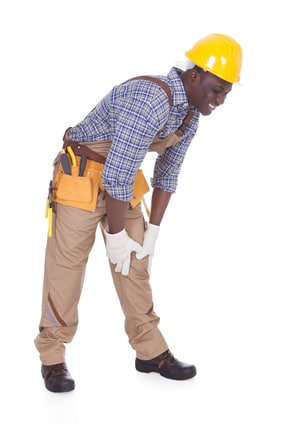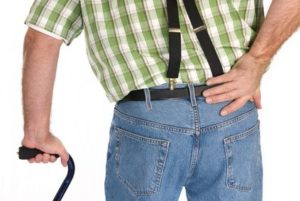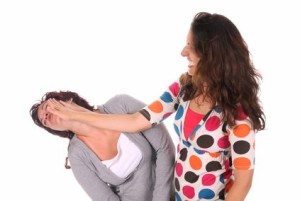Most people just want to get back to work as quick as they can after getting hurt at work. Unfortunately, employers do not always give you what you want or need after an injury.
Some employers just do not have light duty work available. If your employer does not have suitable work available, they may just fire you or lay you off if you are unable to return to your regular job.
They might let you go because you cannot do your job as well anymore (although they would be very unlikely to admit that). Your employer may just say that they are laying people off because business is slow. They may say they are firing you because you have violated company policy, broken a work rule, or accumulated too many points.
Other employers do provide light duty work. These employers may provide work but only temporarily. There are some employers who will provide light duty jobs on a more permanent basis.
Many people find that their work restrictions prevent you from being as productive at work as they used to be. The problem that many workers have to worry about is whether there employer is going to fire them when they are back at light duty work.
If you are faced with this situation, you need to know how getting fired will affect your workers’ compensation case. You also need to know how it will affect your other employment benefits like your health insurance.
Can my company fire me when I have an open workers’ compensation claim?
Most Georgia employees are employees at will. Basically, this means they can be fired for a good reason, a bad reason, or no reason at all. Union employees and other contract employees almost always have better protection than at will employees.
At will employment offers very little protection to employees. Certain federal laws do provide some protections. But some of these federal laws only apply to certain employers.
Also, Georgia has some state laws that provide some protection as well. Unfortunately, Georgia does not have a law that prohibits your employer from firing you while you have an ongoing workers compensation claim. So, people with serious injuries must worry about whether their employers will fire them.
What happens if my employer fires me?
There are at least two things you should consider if your employer fires you sometime after you get hurt at work:
- How does your employer firing you affect your workers’ compensation case?
- How does being fired affect your employment benefits?
Georgia has strange laws regarding how being fired affects your workers compensation case. One critical factor is whether or not you have returned to a suitable light duty job when you are fired. If you have returned to a suitable job, getting your workers compensation benefits restarted will probably be more difficult.
If you are out of work and receiving temporary total disability benefits when your employer fires you, those benefits will probably continue. The basic idea behind this part of the law is that you already showed you were disabled because of your injury, so your employer has to show that you can work to stop paying you those benefits. Your employer firing you is not enough to show that you can work.
However, the exact facts of your case might affect these general rules. Also, many times people are fired shortly after returning to work.
Georgia has special rules about the 15 day time period right after you return to work that may apply if your termination happens during that 15 day period. Even if you are not terminated during this time period, you still need to know these rules when you are returning to light duty work.
How does being terminated affect my workers’ compensation case?
When your employer fires you, it does not end your workers’ compensation case. But it can change your case somewhat. If you still have problems from your injury that restrict your ability to work, you may still receive workers’ compensation benefits after you are fired or laid off.
If you can prove that your employer fired you because of your workers’ compensation injury, then you should receive benefits. Even if you cannot prove that your employer fired you because of your workers compensation injury, you may still be able to prove you are entitled to temporary total disability benefits.
Sometimes, your doctor may take you completely out of work after you are fired. This often happens when you have surgery as a result of your injury. If your doctor takes you completely out of work, you should start receiving benefits.
Even if you can do some type of light duty work, you can get benefits if you prove that you cannot find suitable light duty work. The usual way of doing this is by trying to find a job. Even if you were not pursuing your workers’ compensation case, you would still try to find a job.
If you cannot find a suitable job, you can request a hearing to try to get workers compensation benefits. A judge can award you benefits if you prove that the work restrictions from your injury prevented you from finding a job (or if you had to take a lower paying job because of your work restrictions).
What happens to my other employment benefits if I am fired?
Most people have some kind of benefits through their employers. You may have health insurance, disability insurance, retirement benefits, or other employment benefits.
Being fired could affect several different employment benefits. If you have health insurance through your employer, your employer will likely send you paperwork to offer COBRA coverage.
The problem for many people is that COBRA coverage costs a lot. So, you may need to consider what other health insurance options may be available for you.
Your retirement benefits could be affected as well. Losing your job may mean you do not reach a years of service requirement necessary to qualify for benefits.
 What can I do about the risk of being fired?
What can I do about the risk of being fired?
First, do not give your employer any legitimate reason to fire you. Get to work on time. Follow all the work rules.
You do not want to give your employer a “good reason” to fire you. If your employer has a “good reason” to fire you, it may make it harder to get your workers’ compensation benefits started.
Second, and maybe even more important, make sure you are prepared. Knowing what will happen if you get fired allows you to handle the situation better. You can already have a plan or at least most of a plan in place.
If you do get fired, be sure and act quickly to get answers to your questions. Waiting will probably hurt your chance of getting the benefits you should.


 What can I do about the risk of being fired?
What can I do about the risk of being fired?








